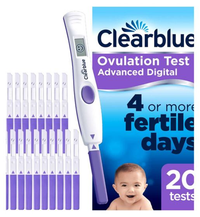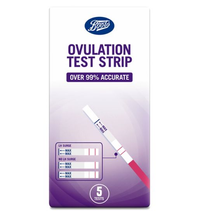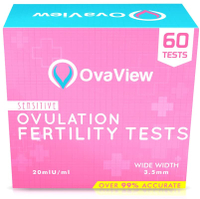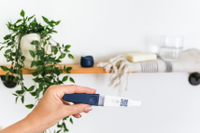Meet Oova: the first personalised ovulation test and the only one that works for women with PCOS
But, question: does it do what it says on the tin? We ask the experts.
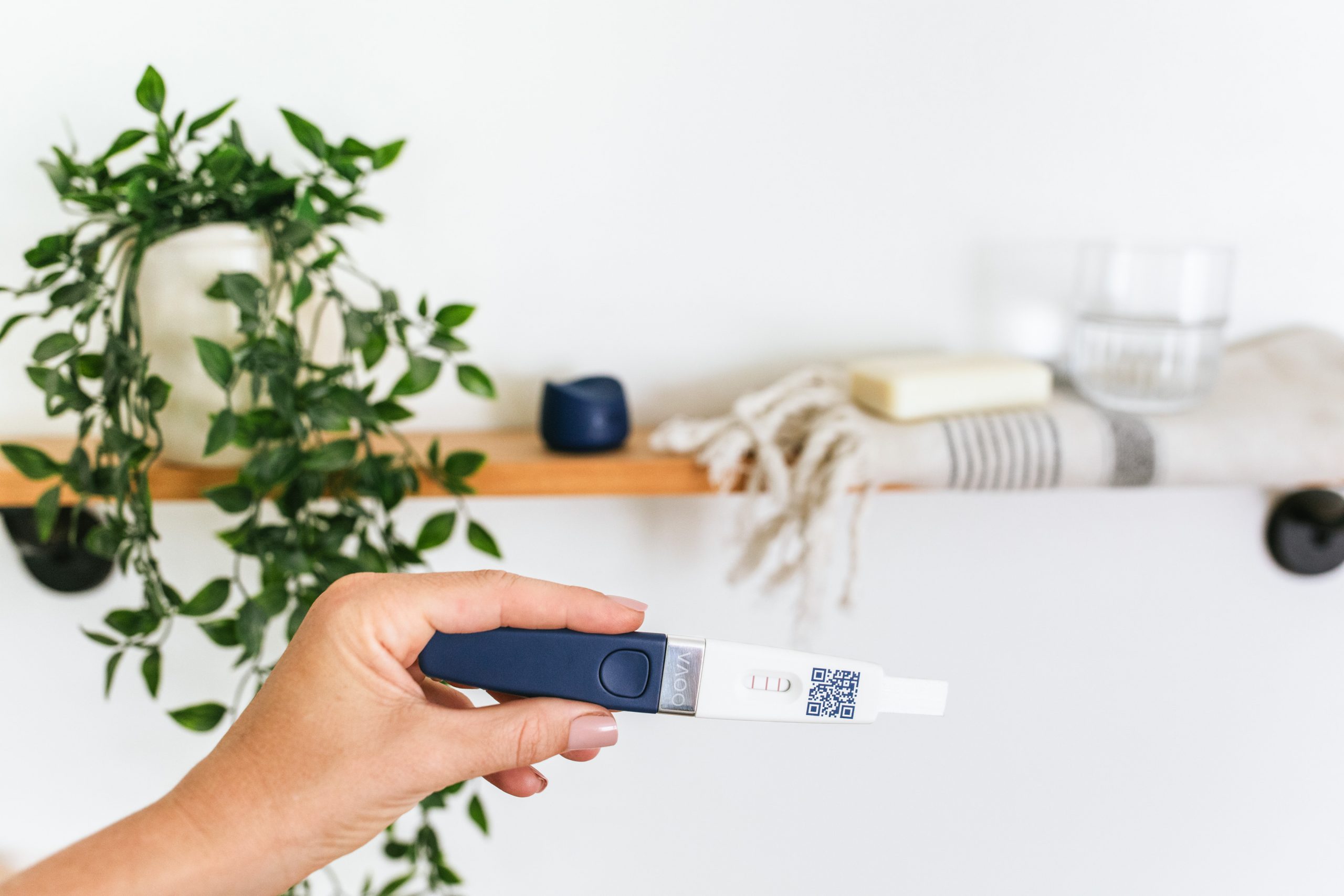
But, question: does it do what it says on the tin? We ask the experts.
"The eighteen months we spent trying to conceive were the darkest of my life," explains doctor Amy Divaraniya. "I did everything I was supposed to do - used ovulation sticks, took my body temperature each morning and tracked everything, yet, we still got negative pregnancy tests each time," she shares.
That's where Oova was born - an at-home fertility test that claims to be the first and only to quantitatively measure two hormones, making ovulation tracking for women sans PCOS - that's polycystic ovary syndrome - even more accurate and those with the condition, possible.
"My journey was heartbreaking, and all of the apps that promised to help were designed for women who had perfect menstrual cycles," she continues. See, Divaraniya didn't and, while couples struggling to conceive can use standard ovulation kits to track their cycle, those with irregular cycles and fertility issues like PCOS sometimes have elevated luteinising hormone (LH) levels, which can lead to false positives on traditional ovulation tests. "Oova, on the other hand, quantitatively measures LH levels," explains Divaraniya.
"Our algorithm doesn’t care if your baseline is high or low - we simply learn your unique baseline and wait for your hormone levels to deviate from that, thus identifying your most fertile days."
Infertility is a growing problem - one in eight couples are thought to be affected - and PCOS can often be a part of the problem. So, this PCOS awareness month, we've decided to dig a little deeper into Oova. Keep reading as we talk to the scientists behind the test, break down what it is, and explain how it works, too.
Introducing Oova: but does it work?
First, a bit of background for you - when a woman is trying to get pregnant, they may use an ovulation test to determine when during their menstrual cycle they are most fertile. "Typically, ovulation tests detect a rise in LH in the urine which happens right before the egg is released by the ovary," explains Divaraniya.
This process is known as ovulation and, for those trying to conceive, it's ideal to align intercourse with the LH surge so sperm can be in the vicinity of the egg when it's released. As above, for those with PCOS, typical ovulation tests aren't as reliable a result of raised LH levels - which is where Oova comes in, promising to monitor ovulation for all women.
Marie Claire Newsletter
Celebrity news, beauty, fashion advice, and fascinating features, delivered straight to your inbox!
Did you know? Within any given cycle, you're only able to conceive for two to five days. "That makes it critical to ensure you time intercourse to the days you're most likely to conceive, and ovulation tests help identify your most fertile days," explains Divaraniya.
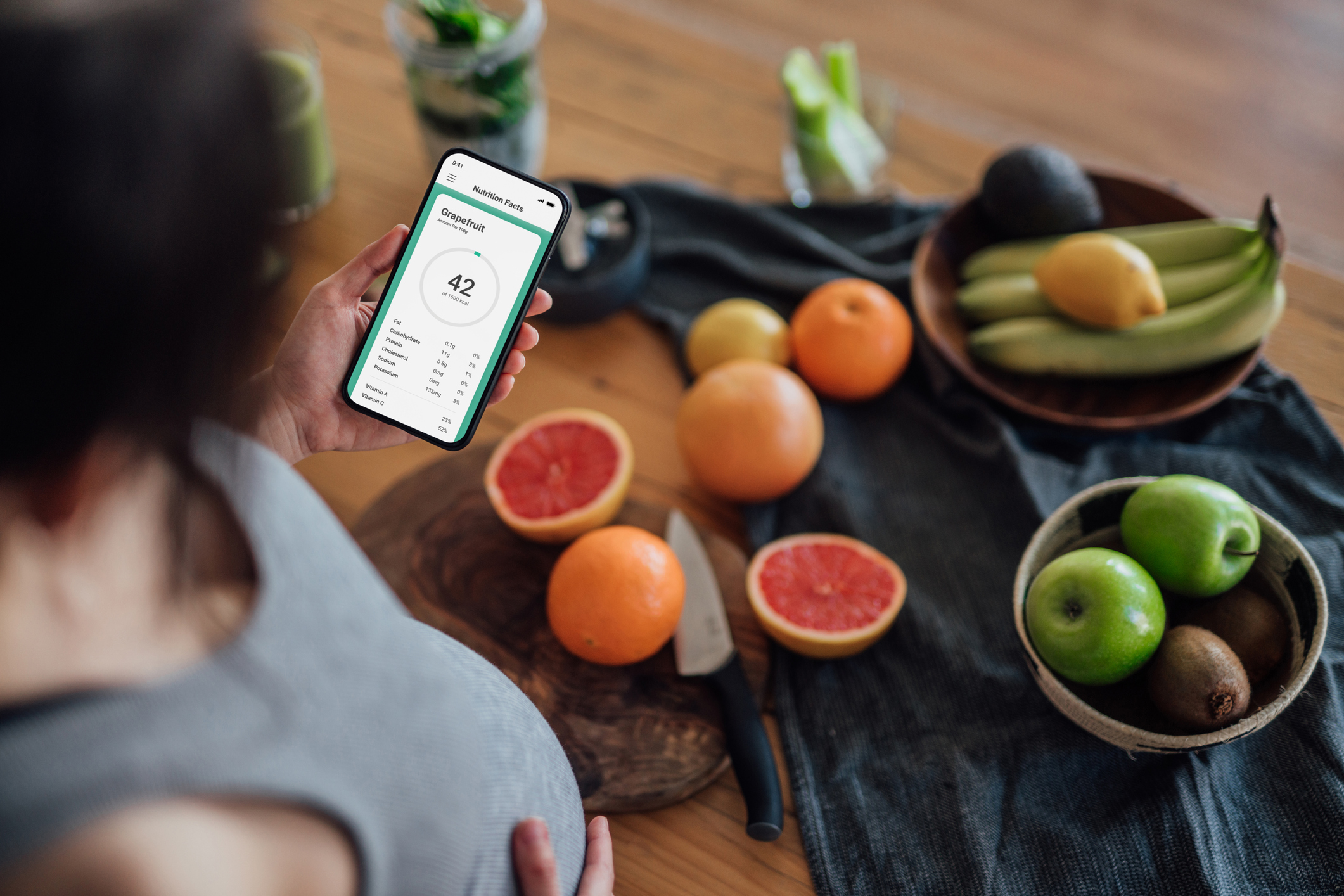
So, how does Oova work?
All you have to do is take your Oova test at home - it's a urine testing strip, so pretty simple. Then, scan it to your phone and your hormone levels will be sent to the Oova app for you to view.
The app delivers you a daily action plan to help you reach whatever goal that set, be it conception or just hormone monitoring.
How accurate is Oova?
Aka, can users be certain it's correct? According to Divaraniya, Oova provides the same accuracy as a blood test, but non-invasively, from the comfort of your home. "Oova is the most accurate and precise at-home fertility test available," the co-founder shares.
So what does an independent doctor think? We asked doctor Deborah Lee of Dr Fox Online Pharmacy for her take.
"Women with PCOS will want to know if they have ovulated and build up a picture of their cycles," she explains. "In a fertility clinic, they would have a blood test on day twenty one to measure their progesterone levels and, if no pregnancy has occurred after six months, they would then be offered a scan cycle."
So, on the plus side? "I think it is a good device and set up," she shares. "Oova gives a realistic option of being able to check ovulation is occurring every month at home. Plus, the app will keep a personalised and numerical record of your hormones which can be shown to a doctor later down the line, actually works for women with endometriosis, PCOS, fibroids and other gynaecological disorders, and may be a good option for those with fertility problems who have a fear of needles and can’t face blood tests," she continues.
However, Oova works on the premise that a raised progesterone means you're ovulating, which 'does not 100% confirm ovulation', Lee shares. "Occasionally women have luteinised (thick-walled) unruptured follicles, which means even if the progesterone levels are elevated, ovulation may still not have occurred. It’s important to realise that the only way to fully know that someone has ovulated is to do a scan cycle - a series of ultrasound scans watch allow you to watch the follicles grow and develop in the ovaries," she explains.
Plus, she adds that it doesn't have quite enough scientific backing as of yet - she can't see any published scientific evidence as to how they have based their claims. "I couldn't find any scientific papers to justify their claims of the efficacy at detecting ovulation," she shares.
Bottom line? While Oova may certainly be a useful tool for some, Daisy reckons that for most, a visit to the doctor is your best bet. "Don’t stay away from the clinic obsessing over home ovulation kits – go and see your doctor and ask for a referral to a fertility clinic sooner rather than later."
Ovulation kits: 4 to try
Still keen to try out an ovulation kit for yourself at home? As the both doctors share, they can be an effective way to track your fertility, even if you have a female health condition like PCOS. Try the following:

Ally Head is Marie Claire UK's Senior Health and Sustainability Editor, nine-time marathoner, and Boston Qualifying runner. Day-to-day, she heads up all strategy for her pillars, working across commissioning, features, and e-commerce, reporting on the latest health updates, writing the must-read wellness content, and rounding up the genuinely sustainable and squat-proof gym leggings worth *adding to basket*. She also spearheads the brand's annual Women in Sport covers, interviewing and shooting the likes of Mary Earps, Millie Bright, Daryll Neita, and Lavaia Nielsen. She's won a BSME for her sustainability work, regularly hosts panels and presents for events like the Sustainability Awards, and is a stickler for a strong stat, too, seeing over nine million total impressions on the January 2023 Wellness Issue she oversaw. Follow Ally on Instagram for more or get in touch.
-
 How are Trump’s tariffs affecting the fashion industry?
How are Trump’s tariffs affecting the fashion industry?The fluctuating situation in the US is having very real consequences
By Rebecca Jane Hill
-
 Here's every character returning for You season 5 - and what it might mean for Joe Goldberg's ending
Here's every character returning for You season 5 - and what it might mean for Joe Goldberg's endingBy Iris Goldsztajn
-
 Celine's new Selfridges pop-up is an ode to summers on the French Riviera
Celine's new Selfridges pop-up is an ode to summers on the French RivieraA one-stop-shop for the ultimate holiday wardrobe
By Clementina Jackson
